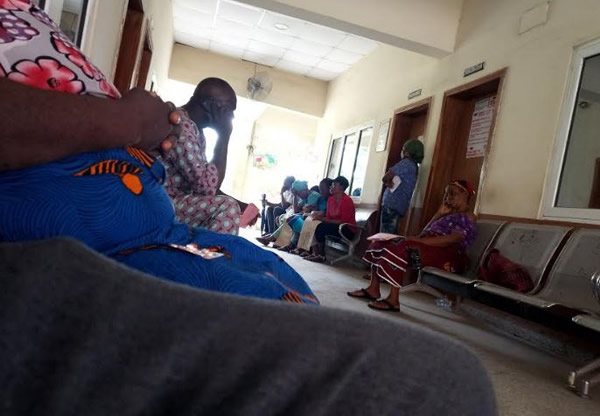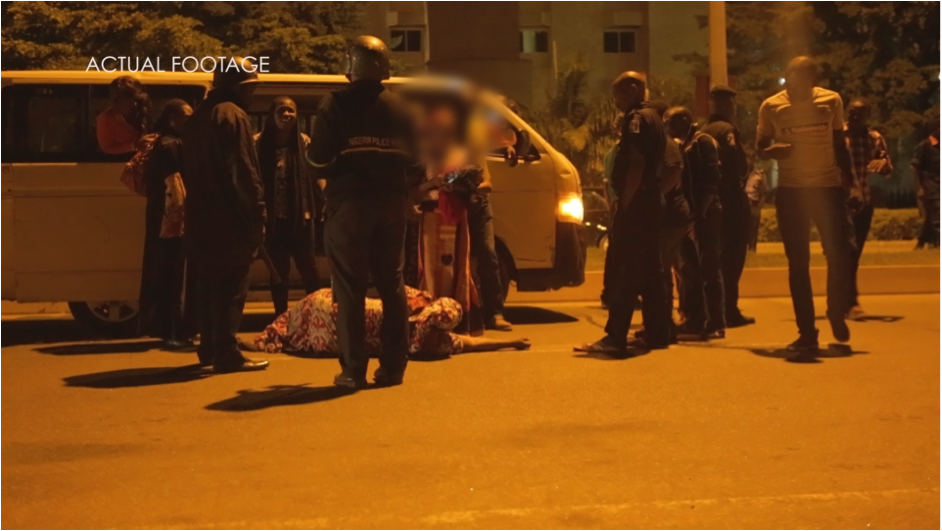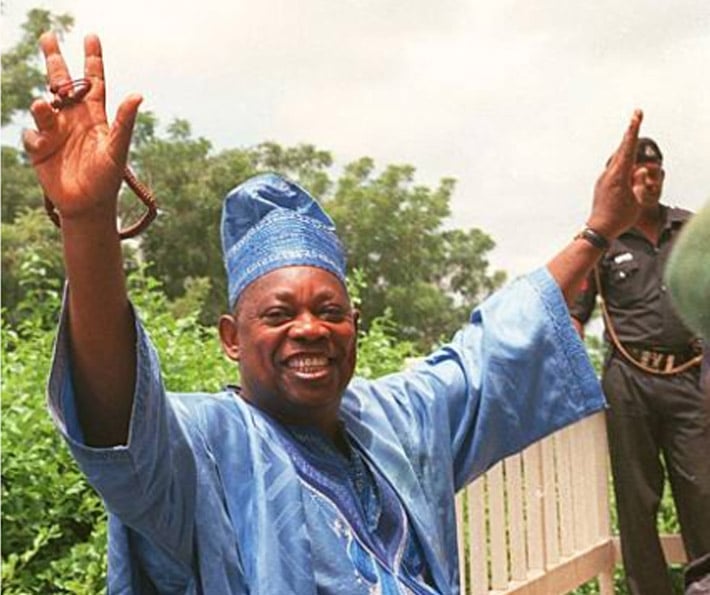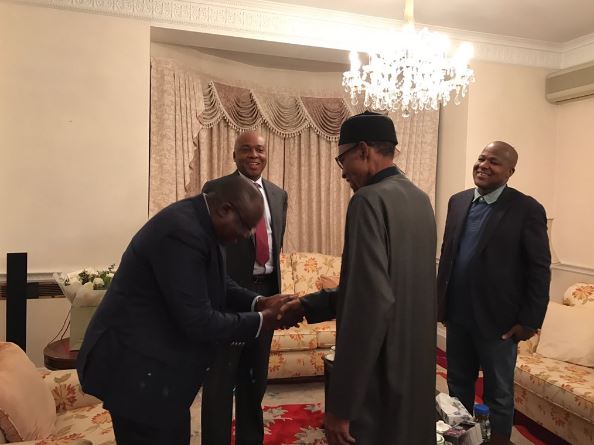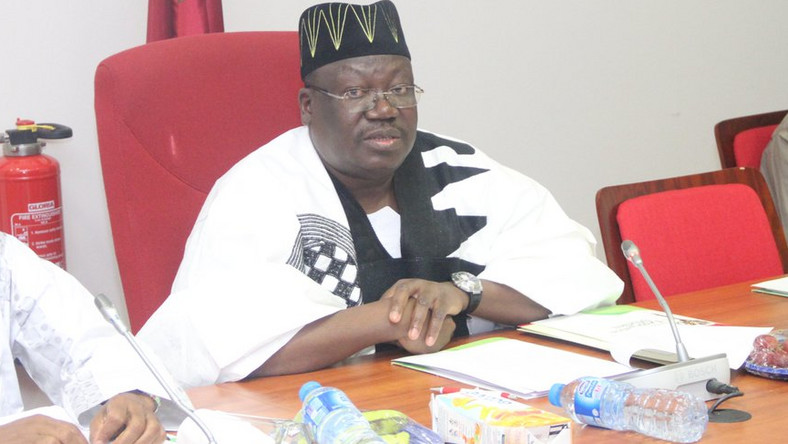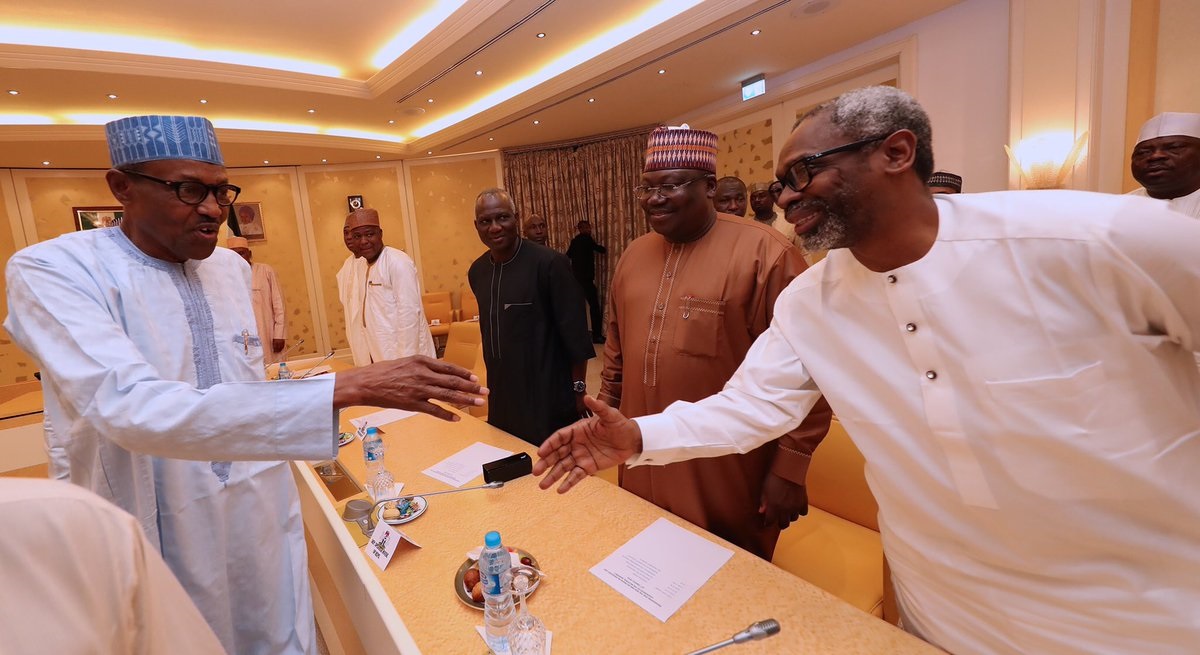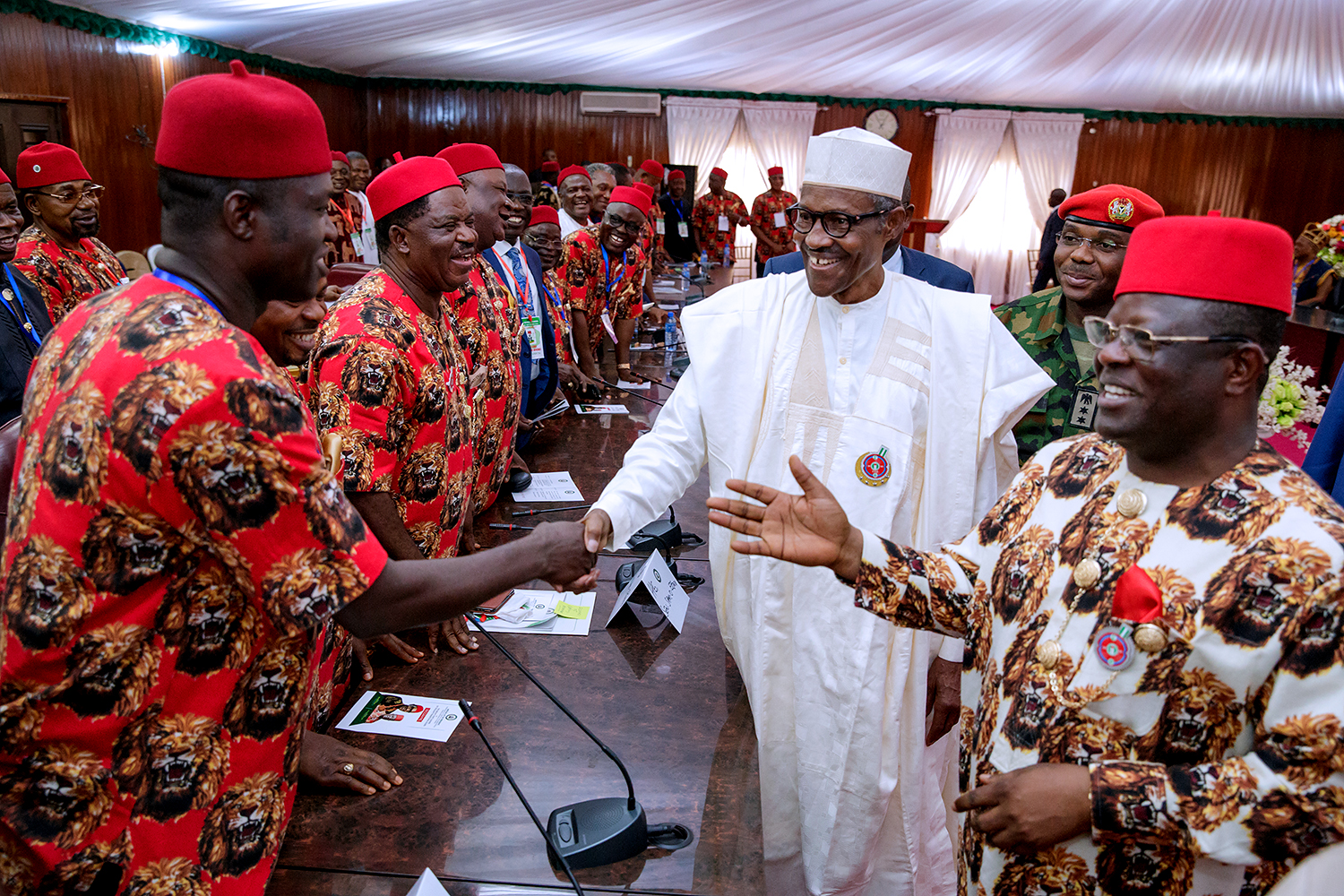Patients waiting for doctors at Alimosho General Hospital
In 2001, Nigeria hosted the Heads of State of the African Union member states and made the “Abuja Declaration” urging leaders to commit at least 15 percent of their annual budgets to improve their health sector.
Eighteen years after the declaration, Nigeria has not attained the pledged funding benchmark, as annual budgets revealed that the Federal Government has never voted more than six per cent to the health sector.
According to WHO’s Overall Health Systems Performance Indices in 2018, Nigeria is ranked 187th of the 191 countries.
Breaking the data further reveals that among a total of 191 nations, Nigeria was ahead of Democratic Republic of Congo, Central African Republic, Myanmar and Sierra Leone only.
Advertisement

Some experts have been puzzled that isn’t it a mystery that someone born as a citizen of a country, with all the privileges and the fundamental human rights accrued to him or her will still be denied access to the public health system, due to no fault of his.
Access to the public health system is fundamental to how a country is viewed as developed or underdeveloped; this generally plays a significant role in adjudging the health system of a country.
Advertisement
Sadly, in this clime, the poor are faced with financial hurdles in paying for service rendered in health care delivery.

Not few Nigerians have groaned and suffered harrowing experiences in their quest to access public health care, because of the huge financial barrier placed on their way; this factor is evident because money plays a significant role in healthcare delivery in this part of the world.
Most of our public health care centres make money a priority before attending to patients, no matter the exigency of the situation, the patient has no choice than to cough out some money, this is without recourse to the financial status of the patient.
Advertisement
This alone is one of the factors that dissuade patients especially the disadvantaged, from accessing public health care, which they see as ‘out of reach’ to them, fueled from the policy of ‘payment before service’ before attending to patient’s demand.

As a result of this, most poor Nigerians have resort to patronising traditional herbal medicine which they consider cheap and accessible, notwithstanding the fact that public health care should be within the reach of the poor.
Recently, when asked why someone who suffers from a broken bone dumps the Orthopaedic medicine for traditional bone setting needs, Dr Mustapha Alimi, the Medical Director, National Orthopaedic Hospital, Igbobi, said: “Many people patronise traditional bone setters because of poverty and wrong information.”
Advertisement
Too much emphasis on money from some hospitals is one of the major factors that have driven many away from accessing public health.

Advertisement
It is a statement of fact that poverty is mostly responsible for the myriad of ill-health most African countries, and Nigeria despite its acclaimed giant of the continent is no exception to the menace.
Poverty has left a sour taste among families with limited resources to access healthcare.
Advertisement
The disadvantaged in the society can hardly afford to purchase those things that will help bring succour their way, when faced with health challenges that required orthodox medicine solution, and getting the wherewithal is always a daunting task.
Even those things such as good food, germ-free environment, access to information among others that make one live healthily are out of the reach of the poor.
Advertisement

There is also a poverty of the mind which disallowed the poor and the vulnerable from getting the needed help when needed, including appropriate health-promoting practices or lack of voice needed to make social services work for them.
It is intriguing that poor healthcare delivery is excessively concentrated among the poor, this may not be unconnected with their inability to pay for the service rendered, and the country at the moment has no provision for the less privileged to enjoy primary health care services.
In developed nations, both the rich and the poor have equal access to healthcare delivery; the health of their citizen is on the exclusive list, largely because sometimes, the rich are taxed for the poor to access public health facilities.

The National Health Insurance Scheme (NHIS) introduced by former President Olusegun Obasanjo, was meant to bring succour, but its limitation to the civil servants who are on the government payroll and some few private organization’s buy-ins, remain the bane of the scheme.
Though a bit of a relief, such initiative would have gone a step further by accommodating all Nigerians irrespective of their status, belonging to the civil service should not be the barrier that will stop them from enjoying subsidised public health care services.
The poor are today faced with challenges of accessing public health system because of obvious lack of subsidy for them; the government appeared not to have prioritised such needs, because the poor are always and still remains at the receiving end.
It behoves on the government at all levels to provide access to a healthcare facility, this is important so as to enable the poor and the disadvantaged to have access to healthcare delivery, as others citizens enjoy such gesture from their government globally.

Take the issue of family planning, for instance, the government must do all within her reach to provide access to free family planning services, because some disadvantaged parents have more than the needed children because they could not afford the cost of child spacing.
Just like provision was made for children to have access to free immunisation, the government must endeavour to consider other areas like Cesarean Sections (CS), which usually cost a fortune and should luck run against any poor pregnant woman scheduled for CS, that may end the woman’s life.
So, providing access to healthcare for Nigerians, irrespective of status would go a long way in salvaging the future of the country, both economically and socially.
The government must also engage thecitizens in public information health campaigns, by creating awareness on how certain health facilities could be accessed, this should be brought down to the very local language spoken by each community in the country.
In an ideal situation where a country prioritizes the health of her citizenry, the poor should be able to conveniently access public health care services which include; the primary care, behavioural health, emergency care, dental care and public health services.

The rural population is mostly affected by this anomaly because most of the public health system is situated in the cities and towns, while the rural population are left to the mercy of traditional health attendants.
Our Primary Health Centres are now a shadow of themselves, where health workers are always at large, attending to their personal businesses or could have secured a greener pasture in the cities, but only shortchanging the system by collecting monthly allowances, reducing themselves to ghost workers.
In some cases, some of the health centres are only occupying space with structure but no functional equipment to help in providing health care services for the rural dwellers.
It must, however, be noted that for the poor to have unfettered access to public healthcare, the government must embark on subsidy or embrace free health care for the less privileged, the rich must be encouraged to carry out corporate social responsibility to support existing efforts.
The government must embrace a holistic approach to health insurance be it dental, surgery, physiotherapy, among others, knowing full well that the standard health of a nation can only be measured by the unrestricted access the poor and the downtrodden have, to access its public health system.
Tosin Kolade is a health, gender, and WASH Correspondent at the News Agency of Nigeria (NAN). She has a passion for environmental reporting, and many of her articles have gained accolades both locally and internationally. She is also a member of Water Journalists Africa, Pan African Media Alliance on Climate Change, National Task Group on Sanitation, WASH in Emergency Working Group, WASH Media Network, and the Nigeria Union of Journalists. Kolade holds a bachelor’s degree in political science from Nasarawa State University, Keffi and a postgraduate diploma in journalism from the International Institute of Journalism in Abuja, Nigeria.
Views expressed by contributors are strictly personal and not of TheCable.

